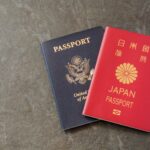Why is it called Golden Week in Japan?

Why is it called Golden Week in Japan?
Etymology of the Golden Week in Japan explained
The Golden Week is a holiday-studded period from the end of April to the beginning of May each year in Japan. Sometimes the media calls it “Ogata Renkyu,” which means “major consecutive holidays.” It was originally one of those English words used and understood only in Japan. However, in the 1980s, as many expats in Japan started using the phrase “Golden Week” in an English context, without translating it into English words like “consecutive holidays,” the term came to be used in English. How did the Golden Week get its name?
The etymology of the phrase “Golden Week” goes back to 1951.
“Golden Week” was coined by a major movie company, Daiei.
During these weeks, in 1951, a film produced by Daiei recorded the company’s highest box office profit (at that time) since the company’s founding. The company “raked it in,” so to speak; it was literally a golden week for the company.
Hideo Matsuyama, Daiei’s managing director at the time, was happy with the success the company achieved during this holiday-studded period and came up with the phrase “Golden Week,” inspired by the radio industry phrase “Golden Time”—the time period with the highest listening rate.
The company thought it was a perfect name for promotion. Therefore, the phrase was later used for advertising, i.e., to promote films during the holiday-studded weeks when a large number of people are expected to visit movie theaters. The name is like a short sales pitch, implying that these are great weeks when people have golden opportunities to enjoy movies.
The end of April to early May is also the season with the best weather of the year in Japan and is good for all kinds of activities. Therefore, it was natural that people started calling this the Golden Week, even if they were not going to movie theaters
- Daiei subsequently named the period centering on Culture Day in November “Silver Week,” but this did not take root at the time. This was possibly because there is only one national holiday in the week in November.
- The Golden Weeks last normally a little over a week with four studded national holidays, Saturdays and Sundays. Many people have to work according to the official public holiday calendar but some people may have up to 9 or 10 straight days off if they use their paid vacation days.
- April 29 (the first national holiday during the Golden Week) was originally celebrated as Emperor Showa’s Birthday. The emperor passed away in 1989 and the holiday was supposed to be removed from the calendar. However, this would have made the Golden Week much shorter, and having just two national holidays instead of three would have made the Golden Week less significant. Therefore, the government decided to keep April 29 as a national holiday, renaming it “Greenery Day.” The name was later changed to “Showa Day” in memory of Emperor Showa and the Showa Era, which lasted for 63 years.
Was the Golden Week in China named after the Golden Week in Japan?
Yes, the Golden Week in China was named after the Golden Week in Japan.
In 1999, a new public holiday system was introduced in China. All of China started having seven consecutive holidays in May. The phrase “Golden Week” in Chinese has its origin in Japanese and is now commonly used in China.

Showa Commemorative Park












